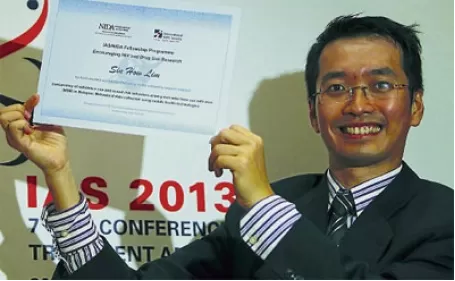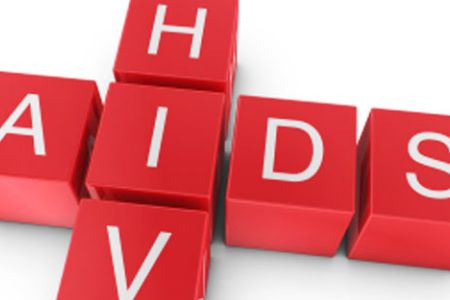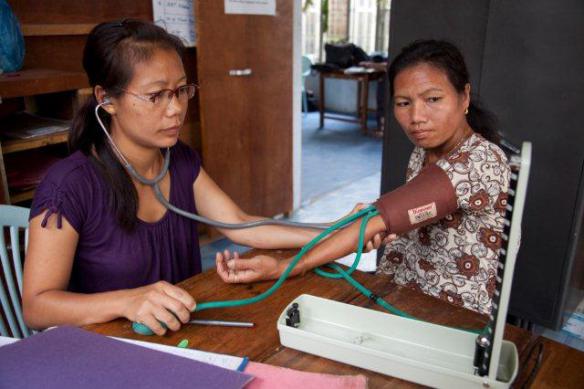Research on HIV in Gay Men Now Championed by This Malaysian
DR Howie Lim Sin How of University Malaya's Centre of Excellence for Research in AIDS has become the first Malaysian to be granted the prestigious IAS-NIDA research fellowship.
Howie Lim Sin How is the first Malaysian to receive AIDS research fellowship
Dr Howie Lim Sin How with a copy of his research fellowship. Pic by Izhari Ariffin
Image via imgur.comLim said he was happy and honoured to received the grant. "I am still overwhelmed. This is a huge breakthrough for my research and I hope this will inspire others to do more."
Lim will use innovative technology to collect behavioural data to better understand the rapport between substance use and sexual risk behaviours.
The winning research titled “Concurrency of substance use and sexual risk behaviours among men who have sex with men (MSM) in Malaysia” will see him undergo a six-month mentorship programme with Yale University, USA.
In detail: Howie Lim's story about winning the prestigious scholarship to research HIV in gay men
Researcher Howie Lim Sin How has become the first Malaysian to win the distinguished International Aids Society/National Institute on Drug Abuse (IAS/NIDA) fellowship programme for 2013.
Lim, 36, is one of four recipients worldwide to receive the prestigious award. The other three are a Ugandan and two Vietnamese.
The research fellowship is co-sponsored by the National Institute on Drug Abuse (Nida), part of the United States' National Institutes of Health and the International AIDS Society (IAS).
"Currently, there's no research done on this issue in Malaysia. But there is a need for an extensive research on this sector because HIV prevalence among MSM is high, at 12 per cent compared with 10 per cent a few years back," Lim told Bernama on the sidelines of the 7th IAS Conference on HIV Pathogenesis, Prevention and Treatment in Kuala Lumpur yesterday.
Image via presstv.irThe scholarship, worth RM255,000 (US$75,000), will allow him to undergo an 18-month research programme at Yale University, United States.
"Currently, there's no research done on this issue in Malaysia. But there is a need for an extensive research on this sector because HIV prevalence among MSM is high, at 12 per cent compared to 10 per cent a few years back,"
Lim who has a PhD in Epidemiology, from the University of Pittsburgh, Pennsylvania, United States of America, is the one of the few local experts in MSM and its risks.
silobreaker.comAlso, Malaysia's success in reducing HIV vulnerability among injecting drug users receives recognition
Meanwhile, Malaysia's success in reducing HIV vulnerability among injecting drug users through its harm reduction strategy has received recognition from one of the world's top HIV/Aids scientist, Francoise Barre-Sinoussi.
Barre-Sinoussi, who is IAS president, noted that Malaysia had taken measures to open up access to more drug users to obtain free treatment, thus helping to prevent new cases of infection.
"Your government had taken a very important decision on that. Many countries don't have the harm reduction programme that Malaysia has. "Indeed it is one of the reason why we organised the conference here," she told reporters at the conference.
Introduced in 2005, the programme encourages injecting drug users to exchange clean needles and syringes at public and private healthcare centres as well as putting them on methadone maintenance therapy.
It has reduced new infection risks among injecting drug users from 60 per cent when it was first introduced, to 30 per cent presently. Data shows that to date, the programme has reached out to 62 per cent or over 110,000 of the estimated number of injecting drug users in the country.


